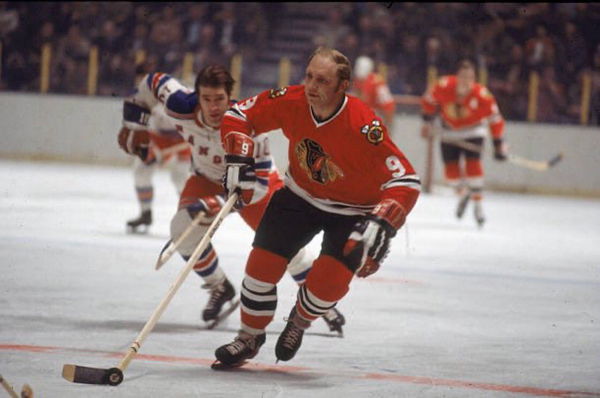

Bobby Hull, 84, is no longer with us, but his name has resurfaced in public discussions due to new information about his health, recently revealed by his wife of 39 years. Deborah Hull came forward to disclose the illness her husband battled, shedding light on the condition that took a toll on the legendary NHL player.
Hull struggled for over 10 years with chronic traumatic encephalopathy (CTE), a progressive cognitive disease that leads to short-term memory loss and impaired judgment. The Hall of Famer was well aware of the negative effects it could have on his life and career, yet he faced it bravely. Deborah’s recent revelation about her husband’s condition underscores the need for greater awareness of such diseases—something Bobby himself strongly advocated for.
"Bobby felt strongly no other family should have to endure CTE,” said Deborah Hull, Bobby’s wife of 39 years. “He insisted on donating his brain, feeling as though it was his duty to help advance research on this agonizing disease.”
— Concussion Legacy Foundation (@ConcussionLF) February 19, 2025
ADVERTISEMENT
Article continues below this ad
“Seeing the pain and heartache suffered by his lifetime friend Stan Mikita’s family, Bobby felt strongly no other family should have to endure CTE. He insisted on donating his brain, feeling as though it was his duty to help advance research on this agonizing disease.”
Bobby Hull gave his best both on and off the ice, with a 23-year professional hockey career that left an indelible mark on the sport. He spent 15 seasons with the Chicago Blackhawks, earning a Stanley Cup title, two Hart Memorial Trophies, and three Art Ross Trophies—a testament to his exceptional career.
Bobby Hull is not alone; more NHL players suffer
Bobby Hull is not the only hockey player linked to CTE. A recent study conducted by the Boston University CTE Center revealed that a large number of male hockey players have been affected by the disease. In the largest-ever study of deceased hockey players, researchers found CTE in 18 out of 19 former NHL players examined. The findings indicated that the odds of developing CTE increase by 34% with every additional year of playing hockey.
Along with Hull’s name, the list of the players who were confirmed to have struggled with CTE included Ralph Backstrom, Stan Mikita, Bob Probert, and Derek Boogaard. For the former Montréal Canadiens star Ralph Backstrom, his 17-year NHL career was very promising. His posthumous diagnosis comes to light along with his persona as an efficient leader and a skilled scorer.
What’s your perspective on:
Should the NHL take more responsibility for CTE, or is it just part of the game?
Have an interesting take?
ADVERTISEMENT
Article continues below this ad

The list continues. There is another Hall of Famer who suffered from CTE just like Bobby Hull. The NHL star, Stan Mikita, suffered from chronic traumatic encephalopathy. Mikita, a Slovakian player, reached out to the NHL post his diagnosis for financial assistance to continue his treatment but had been denied help. His claim was, “The NHL is nowhere on this. They have completely denied a link. They have denied any responsibility, and it’s clear they are just protecting the bottom line“; he unfortunately passed away at the age of 68, in 2018.
ADVERTISEMENT
Article continues below this ad
Another NHL player who also suffered from CTE but then succumbed to heart failure at the age of 45, was Bob Probert; his CTE diagnosis was also posthumous. Having struggled with drinking problems as a player, his diagnosis was then made public to raise awareness of brain trauma amongst players or athletes. On the other hand, Derek Boogard’s report corroborated the symptoms of CTE in his cerebral cortex at a mild stage. His struggle with CTE was real and challenging.
With an array of NHL names associated with CTE, the hockey league accounts for a high number of male players. As detailed above, the majority of detections happened posthumously as a neurological disease. The subsequent research into the correlation between hockey players and CTE provided updated information and shed light on awareness of CTE along with the downsides of the NHL industry.
Have something to say?
Let the world know your perspective.
ADVERTISEMENT
ADVERTISEMENT
ADVERTISEMENT
ADVERTISEMENT

Should the NHL take more responsibility for CTE, or is it just part of the game?